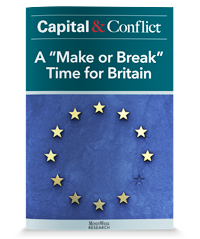
Enjoy Lidl’s £4.99 lobsters while you can. If the EU gets its way, they may not be that price for much longer. Apparently, aggressive American lobsters are a threat to our own peace-loving crustaceans, and they may be banned from sale.
This month, the Swedes – who are significant lobster producers – demanded that the EU ban the import of American lobsters, on the grounds that they are escaping into our waters, and spreading germs.
The fact that American lobster imports to Europe now amount to £100m a year, largely because they are cheaper, has nothing to do with it, according to the Swedish lobster lobby – although of course if they were banned, it would make their lives a lot easier, and push prices back up.
We’ll see what happens as the complaint winds its way through the Brussels bureaucracy. It is hard to believe US lobsters are really nastier than our own, or carry diseases that could not be controlled with tighter regulation.
The trouble is, the EU has proved over the years to be a soft touch when it comes to lobbying by special interest groups. The case illustrates something that is often missed in the debate over whether we should stay in the EU or leave. There is a huge cost to this disguised protectionism, which, while hard to quantify, is growing all the time.
On the whole, World Trade Organisation rules have made explicit tariffs or trade barriers illegal, or taken them downto such modest levels that they don’t make much difference. But what the EU has become very good at over the years is blocking imports by the backdoor.
Rules on health and safety, labelling, place of origin, market dominance and unfair pricing are exploited to create an advantage for local producers. We can see it in rules on agricultural produce. We can see it in heavy industries, such as steel and cement, where lower-cost countries are routinely accused of “dumping”. And we see it in the constant attacks on US tech giants, such as Google or Amazon – whose hefty market shares are a result of being very good at what they do, rather than that they have unfairly muscled aside French, German or British rivals.
The basic problem is the EU’s tendency to roll over for lobbyists. The lobster case is a classic example. Obviously, local industry loses out if cheap imports flood the market. People in the trade understandably want to protect their livelihoods.
Against that, however, the rest of us benefit if what was once a luxury becomes something you can pick up instead of a chicken at the supermarket. Smoked salmon used to be a luxury item, as did prawns. The same has happened to many clothing items, and to electronics. It would probably happen to champagne too, if EU rules didn’t restrict production to a small region of France. So while a small group of producers are worse off, the rest of us, the consumers, benefit.
The trouble is, the beneficiaries only benefit a little. They are not very vocal because they don’t have much of a stake in the outcome. So their voice isn’t heard, and certainly not within a bureaucracy such as Brussels, where lobbyist and special-interest groups count for a lot, and voters and consumers don’t count for much. The net result? Time and time again, some spurious excuse is found for keeping exports out, or for a clampdown on entrepreneurs.
We’ll get by fine without cheap American lobsters. But over time this adds up. Stuff costs more in the shops. New industries don’t develop. Traditional industries start to ossify because they are shielded from new ways of doing things. The official figures don’t capture this – it is very hard to measure. But it’s happening – and we gradually become poorer as a result. Next time you see a headline from one of the lobby groups about how much EU membership is worth, keep those lobsters in mind – and how much more they might soon cost you.